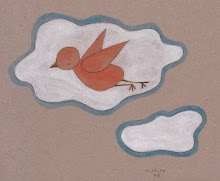My initial reaction to the article by Chris Hedges was this: outrage.
Although I just read Harris's advice to "form the habit of questioning your first responses," I don't see any way around it this time. Sorry, but I'm sticking with outrage.
I will however, try my best to be both generous and skeptical (mostly skeptical, I'll admit) of the text he provides. I'll start by being generous. Of course, I have to recognize the validity of the statistics that he provides - however sad and depressing they may be - and realize the truth behind them. For example, Hedges writes that "nearly a third of the nation's population is illiterate or barely literate" and that number continues to grow. He then adds that "eighty percent of the families in the United States last year did not buy a book," and that nearly half of all college graduates and a third of all high school graduates, never read a book after they finish school. These are some scary pieces of information. Perhaps I'm having such a hard time appreciating this article because I don't want to accept these basic facts. I don't know. Either way, I don't like what he's writing.
I can also understand his frustration with the American people. I especially agree with his idea of Americans having this contrived sense of superiority. He says: "We ask to be indulged and entertained by cliches, stereotypes and mythic narratives that tell us we can be whomever we want to be, that we live in the greatest country on Earth, that we are endowed with superior moral and physical qualities and that our glorious future is preordained, either because of our attributes as Americans or because we are blessed by God or both." This kind of societal uppity that we have developed as a people really upsets me too. It's definitely my least favorite thing about America.
Well, now comes the skeptical part. I want to start by saying I do not at all appreciate the message of this text. To me, it seems completely hopeless and backward. He himself is the bully - the "elitist" - that he describes in his text. He is the literate, well-educated one, but he's not doing anything to help those who aren't. He says we live in two Americas, which are basically, from my understanding of his argument, one made up of those who are fortunate and have been taught how to think, and one made up those who are not so lucky and simply scrape by with their limited knowledge. But don't you think he's worsening this divide by allowing it to continue? Sure, his text addresses the issue. That's a start. But surely he realizes the only people who will read his text are those living in his same, literate America.
Yes, literacy is an issue that needs to be dealt with, but in a much different way than Hedges goes about doing. I'm just not really sure what he even hoped to achieve through wiriting this article. Did he want to scare people? To frustrate them more? To make them feel either superior or inferior, depending on which "world" they belong to? Maybe I'm missing something, but I don't see the point in doing any of these things. I don't like being told that my country "lives in a state of permanent amnesia" and "exists in a non-reality-based belief system." I don't like being told that all we understand are "images and slogans," and that "we do not seek or want honesty." There is no evidence to these ideas. They are Hedges' opinions, and while he is entitled to his opinions, I disagree. Maybe I’m naïve, but I highly doubt that anyone makes the conscious effort to avoid literacy skills, to avoid knowledge, to avoid truth. People are good and desire to do good things, but Hedges' text does not offer much encouragement.
Subscribe to:
Post Comments (Atom)

"...I highly doubt that anyone makes the conscious effort to avoid literacy skills..." For some reason I can't imagine someone saying, "I refuse to read," either. If anything they may feel ashamed of this inability, and Hedges's article could only make them feel worse.
ReplyDeleteI think you made a pretty good effort to be generous and skeptical, Sadie. The was a thoughtful response.
ReplyDeleteThe question about Hedges's purpose is a good one. I think one reason he writes so directly is because he wants to push people to have a reaction, to push them out of the comfort zone that he doesn't like. At the same time, pushing people can cause them to push back, raising questions about his methods and tone.